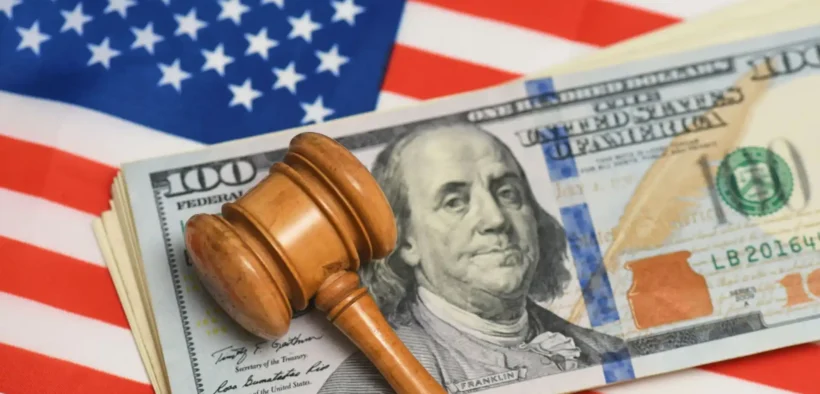$700M Mistakes: The Largest US Data Breach Settlements and What They Mean for Your Business
Share

Data breaches continue to dominate headlines in the United States, costing companies millions of dollars and shaking consumer trust. Beyond the immediate financial damage, these incidents often lead to record-breaking settlements with regulators and affected consumers. For businesses, each case is a warning and a learning opportunity.
This article explores some of the largest data breach settlements in the US and highlights what organizations can learn to avoid becoming the next cautionary tale.
Why Data Breach Settlements Matter
A data breach settlement is the financial resolution a company agrees to pay after a privacy or cybersecurity failure. These settlements often involve:
- Direct compensation to affected consumers
- Regulatory fines or penalties
- Required changes to security practices
- Ongoing compliance monitoring
Understanding these outcomes helps businesses see the real-world costs of weak data protection.
Top US Data Breach Settlements
1. Equifax (2017) – $700 Million Settlement
The Equifax breach exposed the personal information of nearly 150 million Americans, including Social Security numbers and birth dates. In 2019, Equifax agreed to pay up to $700 million in a settlement with the Federal Trade Commission (FTC), Consumer Financial Protection Bureau (CFPB), and 50 states.
Lesson for Businesses:
Regular patch management is critical. Equifax’s breach occurred because of an unpatched vulnerability—something every organization can prevent with proper IT governance.
2. T-Mobile (2021) – $350 Million Settlement
T-Mobile faced a massive breach that affected more than 76 million customers. The settlement in 2022 included $350 million to fund claims and at least $150 million in security upgrades.
Lesson for Businesses:
Data minimization is key. The company stored data it no longer needed, which increased the scale of the breach. Holding data longer than necessary increases both risk and liability.
3. Anthem (2015) – $115 Million Settlement
Health insurer Anthem was hit by a cyberattack that compromised nearly 80 million medical records. In 2017, Anthem agreed to pay $115 million in what was then the largest healthcare data breach settlement.
Lesson for Businesses:
Healthcare organizations must follow HIPAA requirements strictly. Encrypting sensitive health data and segmenting networks are essential to reducing risk.
4. Yahoo (2013–2014) – $117.5 Million Settlement
Yahoo’s repeated breaches affected all 3 billion of its user accounts worldwide. The 2019 settlement required the company to pay $117.5 million and implement stronger security protocols.
Lesson for Businesses:
Transparency matters. Yahoo delayed disclosure for years, worsening reputational harm. Regulators are increasingly punishing companies that hide breaches.
5. Capital One (2019) – $80 Million Fine
Capital One suffered a breach that exposed the personal information of over 100 million customers. In 2020, the Office of the Comptroller of the Currency fined the bank $80 million for inadequate risk management.
Lesson for Businesses:
Cloud security cannot be ignored. Capital One’s breach highlights the importance of shared responsibility in cloud environments—businesses must configure and monitor security controls diligently.
Common Themes Across Data Breach Settlements
| Theme | What It Means for Businesses |
|---|---|
| Patch Management | Regularly update and patch systems to close vulnerabilities. |
| Data Minimization | Store only the data you truly need and set clear retention schedules. |
| Encryption & Access Controls | Encrypt sensitive data and limit employee access on a need-to-know basis. |
| Incident Response | Have a clear plan to detect, contain, and report breaches quickly. |
| Transparency | Promptly notify regulators and consumers when a breach occurs. |
How Businesses Can Avoid Data Breach Liability
- Conduct Regular Risk Assessments – Identify vulnerabilities in systems and processes.
- Invest in Employee Training – Human error is a leading cause of breaches.
- Adopt Security Frameworks – Use NIST or ISO 27001 as benchmarks for compliance.
- Prepare for Regulations – Beyond federal law, states like California (CPRA) impose strict obligations.
- Build Consumer Trust – Transparency and proactive protection are business advantages, not just legal requirements.
FAQs on Data Breach Settlements
Q1: Who enforces data breach settlements in the US?
Primarily the FTC, SEC, state attorneys general, and industry regulators like HHS (for healthcare).
Q2: Are settlements tax-deductible for companies?
Not usually. Many settlements explicitly prohibit tax deductions for penalties.
Q3: Can small businesses face large settlements too?
Yes. While large corporations make headlines, small businesses are often targets due to weaker defenses. Settlements may not reach billions but can still bankrupt a small company.
Q4: What industries face the highest risk?
Finance, healthcare, retail, and telecom are frequent targets due to the volume and sensitivity of data they handle.
Final Thoughts
The top data breach settlements in the US serve as a clear reminder: data privacy and cybersecurity are business-critical. The financial penalties are only part of the damage—reputational harm and lost consumer trust can be even harder to recover from.
By learning from past cases and investing in proactive compliance, businesses can avoid costly mistakes and build stronger, more trustworthy relationships with their customers.




































Leave a Reply